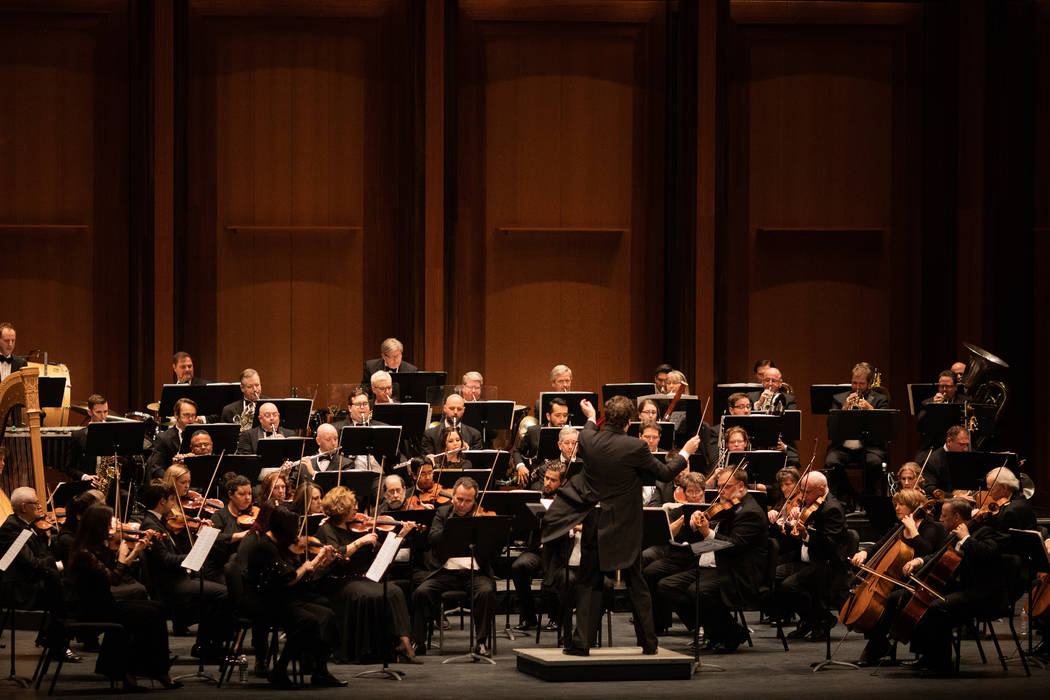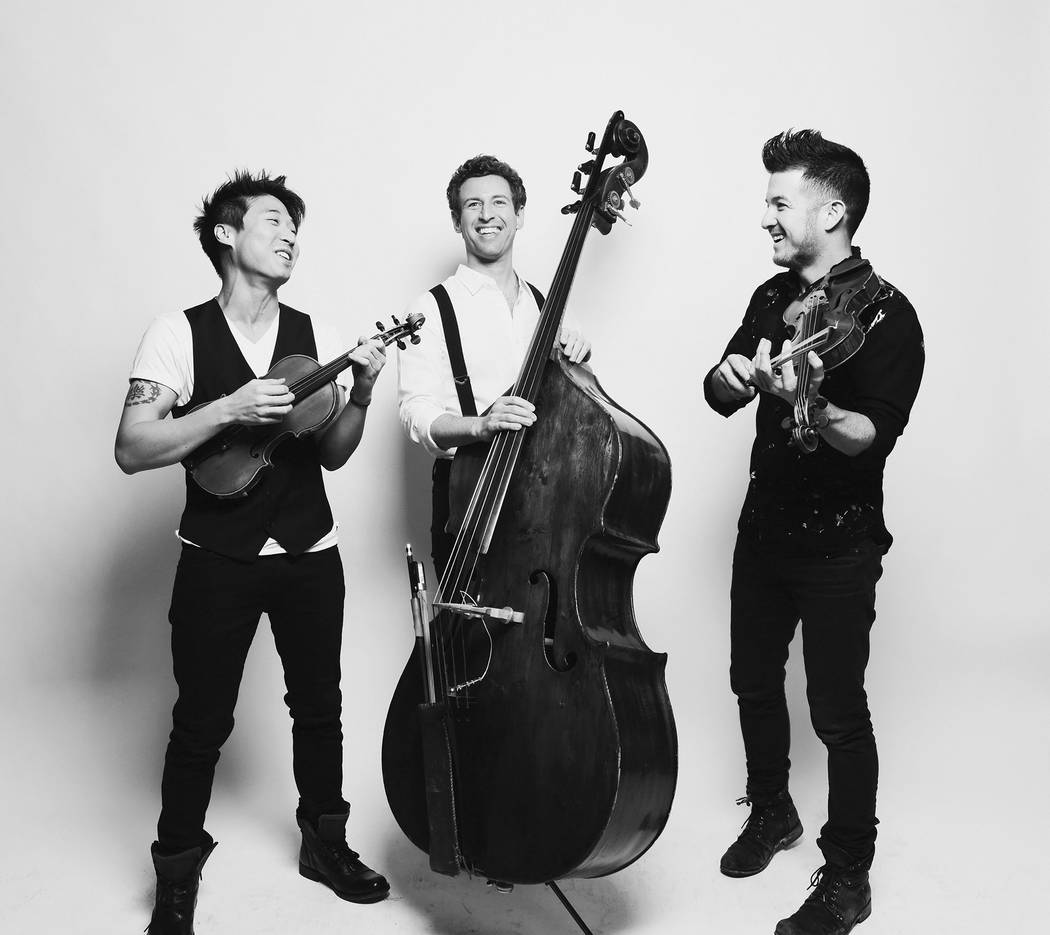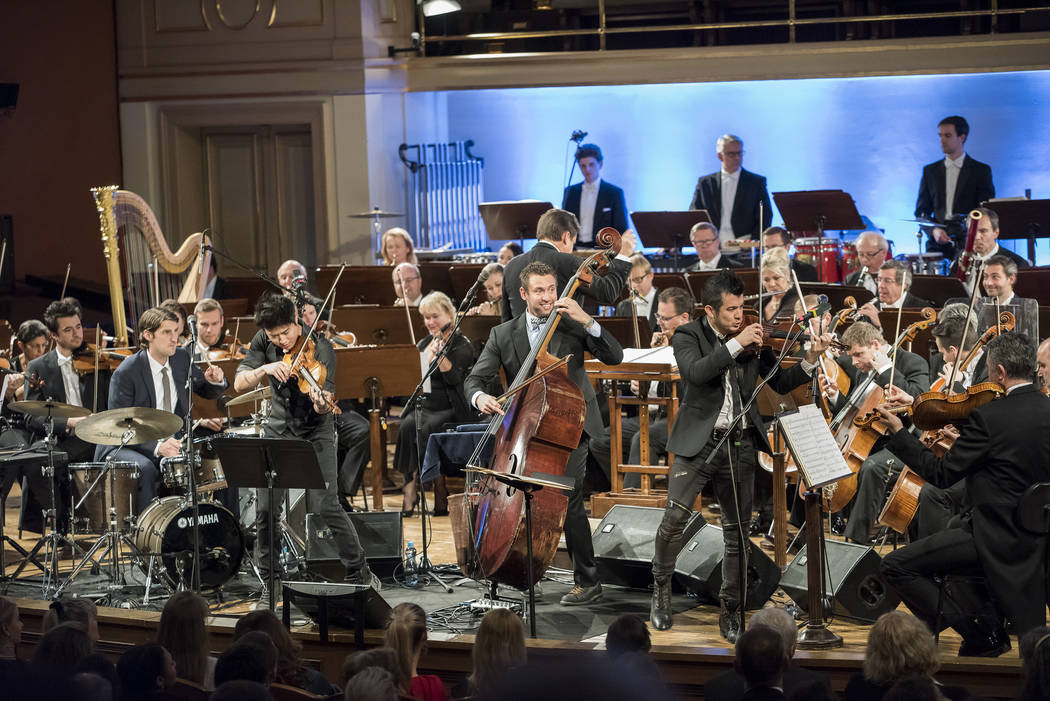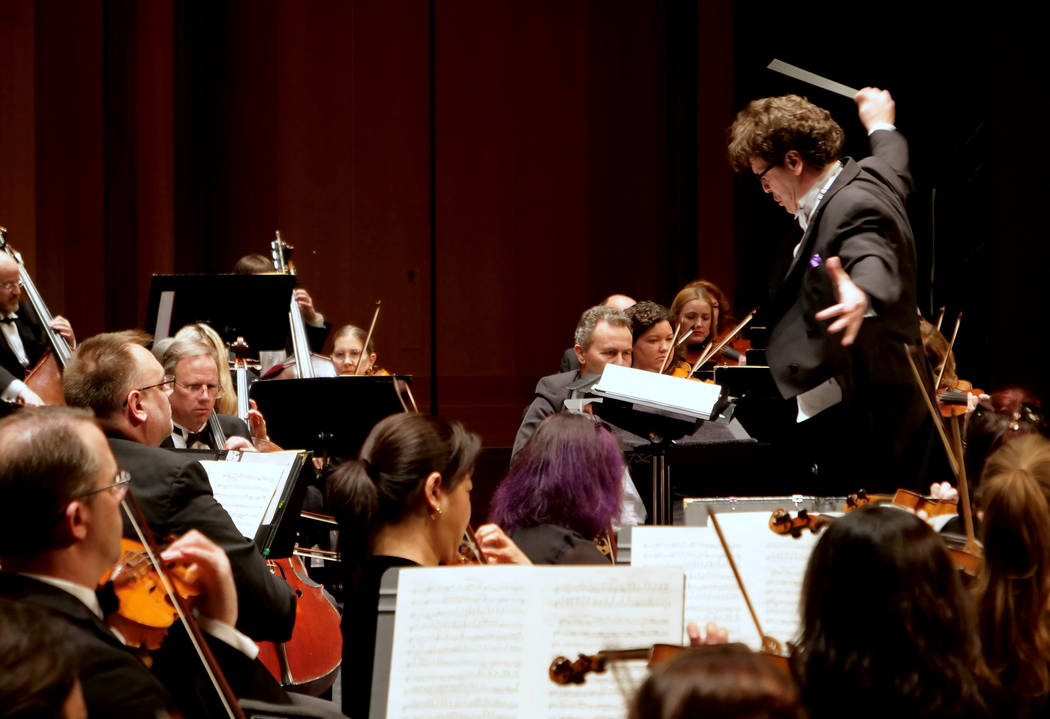String trio Time for Three pushes bounds of classical music
It’s kind of like roughhousing in the living room when you were a kid.
The violin savant on the other end of the phone is explaining as much.
It’s a Friday afternoon, and Nick Kendall, having just escaped the wintry confines of Minnesota for Florida on tour, is breaking down what it’s like to be a classically trained musician with one foot planted inside that world and one foot outside of it — like, in another ZIP code.
Kendall is one-third of Time for Three, a deliberately hard-to-pigeonhole combo consisting of two violinists, a double bassist and lots of scrambled expectations.
In addition to composing their own songs, they’ve made names for themselves with classical arrangements of hits by Kanye West, Calvin Harris and scads more, as well as inventive mashups that pair the works of, say, Guns N’ Roses with Gustav Mahler.
This is the core of Time for Three: the merging of a classical musician’s formal training with the informal fun of rocking out to “Sweet Child O’ Mine” with your buddies.
“It’s like the idea that as a kid, you’re never really allowed to play in the living room because that was always the place where adults hang out, but any time you did get a chance to play in there, it was super exciting and special, because it was proper,” Kendall says. “It’s like that when people see classical musicians: There’s a respect there because they know there’s a mastery there, but they love it when they’re having fun.”
It all began when they were kids, really: Think of the studiousness required to be an aspiring chamber musician, then think of how little that might resonate with your Nirvana-loving classmates.
There’s a chasm there, one that Time for Three was literally born to bridge.
“It goes back to middle school to high school. We were so focused on something that wasn’t necessarily popular among our friends, but in order to be popular, we started doing arrangements of stuff that was being listened to by everybody,” Kendall says. “It was a way to just be accepted into the crowd. I don’t want to say that we were trying to dumb stuff down or anything, but it was a way to make connections.”
Eventually, they’d all connect with each other.
Unexpected origins
Time for Three came to life in impromptu fashion, when Kendall, double bassist Ranaan Meyer and violinist Zachary DePue (who left the band in 2015, eventually being replaced by Charles Yang) started jamming together when they were students at Philadelphia’s Curtis Institute of Music.
“When we started this thing, we were just messing around,” Kendall says. “We were intensely working on these symphonies or the solo (repertoire), which takes so much concentration. We would literally just jam together at the conservatory. It was a way to blow off steam, but still within the creative spirit.
“None of us thought that it would become our career and something that people would pay money to come see us play — especially our parents,” he continues. “When we were first getting this off the ground, we’re getting calls from agents and concert bookers. We couldn’t believe it.”
It’s been a bit of a whirlwind ever since.
After officially forming in 2003, Time for Three would go on to perform everywhere from Carnegie Hall to ABC’s “Dancing With the Stars,” releasing five albums, equally at home playing with the vaunted Philadelphia Orchestra, Pittsburgh Symphony and San Francisco Symphony, to name but a few, or in rock clubs on their own.
They are something of a gateway act, capable of luring nontraditional classical music fans to their performances because of their nontraditional take on classical music — just don’t brand them with the dreaded “C”-word.
“ ‘Crossover,’ first of all, it sounds like a disease. We hate that word,” Kendall says. “Crossover was a way to do a new kind of business, for record companies to take an artist from one genre and try to get new fans, so they’d put out something that’s fake.
“But for us, we feel like we reflect a lot of this generation’s new artists who are coming from classical music, who all went to public school, we have the internet and are listening to all sorts of music,” he continues. “We’re making this new music utilizing every bit of technique, knowledge and practice that comes from playing the violin.”
Show-stoppers
Time for Three has developed a reputation for its fiery yet personable live performances, where Kendall and company dress casually in T-shirts, share stories about their songs and then let it rip on cue.
It was one of the group’s sets last year at The Smith Center’s Cabaret Jazz that especially impressed Las Vegas Philharmonic music director Donato Cabrera.
“That was the final exclamation point of, ‘We need to bring their show to the Las Vegas Philharmonic,’ ” Cabrera says. “It was so inspiring. They are really, really cool.”
For Cabrera, a group such as Time for Three challenges the assumptions of what it means to be a classically-trained musician.
“They’re an expression of what we all are,” Cabrera says. “We’re so quick to put every artist in a box. ‘You sing country.’ ‘You play jazz.’ In fact, when you get to know musicians of all stripes, we all love everything. So what I’m so excited about is that this helps break down these barriers, these imaginary walls that we’ve put up for ourselves and that people think we have.”
Speaking of breaking down barriers, Kendall notes that he and his bandmates have been focused on doing that within their own repertoire of late. Ever since being joined by Yang, who’s also a talented singer, the group has been pushing its sound in new directions, going to Nashville and collaborating with Liz Rose, who’s best known for writing a number of songs on Taylor Swift’s first two records.
Their Wikipedia page continues to describe them as a “classically trained garage band.” But it might be time for an edit on that one.
“Honestly, man, ‘classically trained garage band’ is a tag that we don’t like,” Kendall says. “We’re focused less on doing mashups and more on writing our own original stuff. Yes, we love the art form, and every bit of phrasing or any riff that we come up with comes from all of that.
“But we’re not a classical band — and we’re not, not a classical band,” he adds. “We’re Time for Three.”
Contact Jason Bracelin at jbracelin@reviewjournal.com or 702-383-0476. Follow @JasonBracelin on Twitter.
Preview
Who: Time for Three with the Las Vegas Philharmonic
When: 8 p.m. Saturday
Where: The Smith Center, 361 Symphony Park Ave.
Tickets: $30 and up (702-749-2000)


























